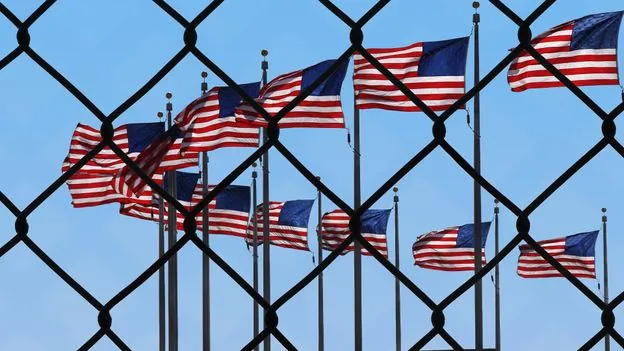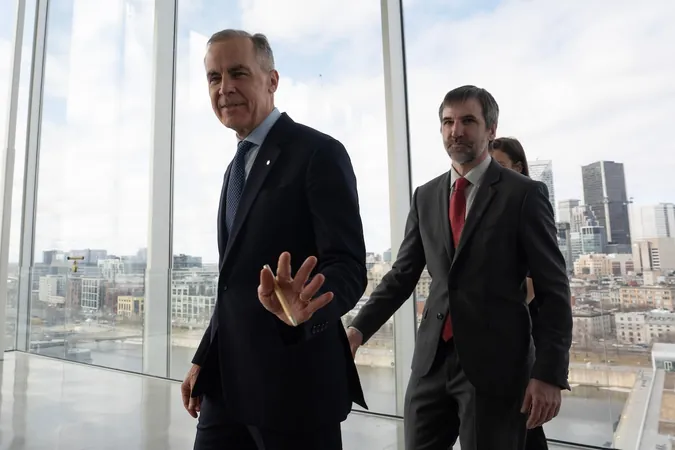
Is the US a 'Hostile State'? How Travel Boycotts are Reshaping International Tourism
2025-03-31
Author: Charlotte
Introduction
In an alarming trend for the travel industry, a growing number of international travelers are opting to avoid the United States, raising questions about the long-term effects on tourism and the economy. Amidst heightened political tensions, stringent immigration policies, and travel advisories from various nations, the US is being perceived as a less welcoming destination.
Impact of US Travel Policies
Recent changes in US travel and immigration policies, spearheaded by former President Donald Trump, have led to increased scrutiny at border crossings, resulting in the detention of tourists from countries like Canada and several European nations. This has prompted countries including Germany, the UK, Denmark, Finland, and Portugal to issue travel warnings, urging their citizens to reconsider plans to visit the US.
Canada's Response and Economic Consequences
One of the most significant impacts has come from Canada, which sends over 20 million visitors to the US each year. In a striking response to political tensions, Canadian Prime Minister Justin Trudeau has encouraged citizens to support local tourism by opting for Canadian vacation destinations instead of the United States. This appeal seems to resonate, as a substantial 20% drop in border crossings from Canada was reported in February, according to Statistics Canada. The economic ramifications could be severe, potentially costing the US an estimated $2.1 billion and resulting in thousands of job losses in the tourism sector.
Safety Concerns and Changing Travel Patterns
Safety concerns have become a major factor influencing Canadian travelers. Canadian travel journalist Kate Dingwall voiced her apprehensions regarding border security and the overall atmosphere in the US, stating, “There’s just a sense of uneasiness around visiting America at the moment.” Similarly, Montreal comedian Keith Serry decided to cancel multiple performances in New York City due to these same concerns, expressing his reluctance to support the economy of what he perceives as a 'hostile state.'
Alternatives to US Travel
Reports of increasingly stringent border security have made headlines too, with travelers facing unexpected detentions even when equipped with valid documentation. This shift has resulted in a notable change in travel patterns; instead of heading to the US, many Canadians are embracing destinations like Mexico, South America, and Europe—places perceived as more welcoming.
Surge in Interest for Other Destinations
With the tightening of travel from Canada, certain international locales have experienced a surge in interest. For instance, hotels in Bermuda report a significant increase in inquiries from Canadians seeking to relocate planned events from the US, a trend that reflects growing discontent with travel conditions in America.
Economic Implications for US Tourism
Before this shift, the US tourism sector was witnessing record growth, contributing immensely to the economy. The World Travel & Tourism Council noted that the US was the world's leading travel destination, with the sector generating an unparalleled economic impact of $2.36 trillion. However, experts in tourism are now revising forecasts, anticipating a decline instead of the previously predicted growth, attributing it to issues like strained travel sentiment and rising costs associated with exchange rate shifts.
Effects on Local Businesses and Employment
Jeff Le, a former California state official, highlighted the substantial economic fallout expected if this trend continues, particularly for local businesses that heavily rely on international visitors. In 2023 alone, California benefited from over $24 billion generated by international travelers, and a significant downturn could spell disaster for both the economy and local government revenues.
Impact on Small Businesses
The effects of international travel boycotts are not felt equally across the board; small businesses that make up over 99% of the US event and exhibitions industry might suffer the most. Thomas F Goodwin, a leader in the Exhibitions and Conferences Alliance, emphasized that these boycotts impact the daily lives of American workers—from hospitality to transportation—leaving many vulnerable to economic strains.
Broader Implications for US Influence
Beyond dollars and cents, this evolving perception around US tourism can have broader implications for America's global influence. Experts warn that declining visitor numbers could signal a loss of 'soft power,' which the US has traditionally wielded through cultural leadership and an open society. The long-term ramifications of this could include reduced innovation and competitiveness, as academics, artists, and entrepreneurs may choose to engage with more welcoming nations.
Personal Toll of Travel Boycotts
Ultimately, the consequences of traveler boycotts extend to individuals, as many miss significant life events, like weddings or family reunions, due to an increasingly adversarial travel climate. Missouri lawyer John Beck underscored the human side of this issue, noting that policies often fail to account for the personal toll on both travelers and their families.
Conclusion
As the perception of the US continues to shift, and more people opt for alternative vacation spots, all eyes will be on how these changes impact not just the tourism industry, but the fabric of American culture and its place in the world.









 Brasil (PT)
Brasil (PT)
 Canada (EN)
Canada (EN)
 Chile (ES)
Chile (ES)
 Česko (CS)
Česko (CS)
 대한민국 (KO)
대한민국 (KO)
 España (ES)
España (ES)
 France (FR)
France (FR)
 Hong Kong (EN)
Hong Kong (EN)
 Italia (IT)
Italia (IT)
 日本 (JA)
日本 (JA)
 Magyarország (HU)
Magyarország (HU)
 Norge (NO)
Norge (NO)
 Polska (PL)
Polska (PL)
 Schweiz (DE)
Schweiz (DE)
 Singapore (EN)
Singapore (EN)
 Sverige (SV)
Sverige (SV)
 Suomi (FI)
Suomi (FI)
 Türkiye (TR)
Türkiye (TR)
 الإمارات العربية المتحدة (AR)
الإمارات العربية المتحدة (AR)